Short Term Memory Loss: What is it?

Hey guys, this is Ron White, maybe you’ve seen me on Stanley’s Superhumans on the History Channel or the National Geographic show Brain Games. When I was training for the USA Memory Championship, and I’m a 2-time USA Memory Champion, I would store information in my short term and long-term memory.

What is short-term memory?
Short-term memory is anything that is in your memory for just 15 to 30 seconds. If it makes it past that 30 second mark, it is considered to be long term memory.
Some examples of short-term memory are:
Temporarily memorizing a phone number until you have a chance to write it down.
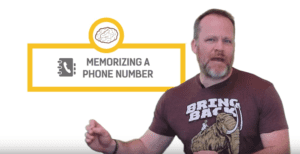
Another example of short term memory is when you’re having a conversation with someone and you think of something that you want to say and you hold that information in your short term memory until you are able to fit it in to the conversation.
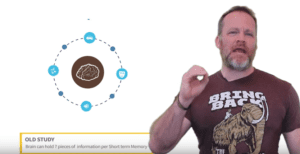
A 50 year old study suggests that the brain can hold, on average, seven pieces of information per short term memory; however, more recent modern studies suggests that the brain can hold only four pieces of information per short term memory.
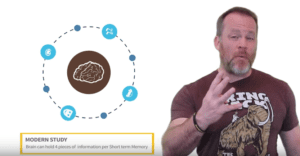
A lot of people panic because they have short term memory loss, but here are some examples of short term memory loss that are completely normal and nothing to worry about, such as:

Misplacing common objects, like keys or cell phone is completely normal. Another example would be not being able to think of the right word or not remembering what you just read or walking in to a room and not remembering why you walked in to that room, are also very common and normal.

Sometimes occasionally calling someone by the wrong name is nothing to really be that worried about. But there are more signs that your memory may be in serious troubles and those would include:

Getting seriously lost while driving in an area close to your home or having a hard time following a simple movie or book plot. Another example of short term memory loss is not being able to remember if you’ve eaten or not or repeatedly asking the same question over and over again or personality changes are more serious short term memory loss.

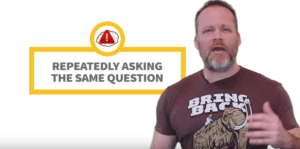
So now that you’re familiar with what short term memory is, what causes short term memory loss?
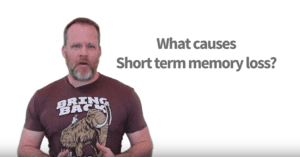
Sleep apnea is a sleep disorder where breathing temporarily stops, briefly but frequently during the night. You may have sleep apnea if you wake up with a head ache or you have fatigue during the day or people complain about you snoring when you sleep.
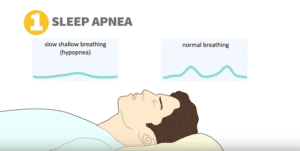
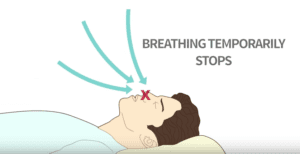
One reason sleep apnea affects the memory is because during the night your brain is briefly deprived of oxygen which impacts your brain and memory. The type of memory that sleep apnea is going to affect is remembering where you put your keys or trying to remember directions.
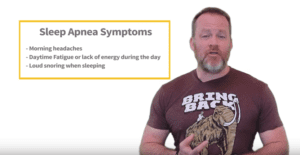
Another thing that can cause short term memory loss is silent stroke, these silent strokes really affect the smaller blood vessels and in doing that, it is going to affect the amount of oxygen to your brain and it’s going to affect your short term memory.
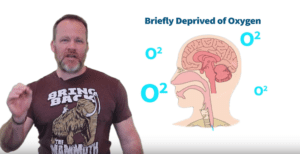
The third thing that can impact your short term memory is medication.
When I was training and preparing for the USA Memory Championship, I would not take anything like a Tylenol PM or an Advil PM for weeks or months prior to the tournament, because I knew it would cloud my head and affect my short term memory.
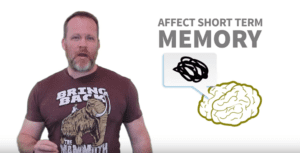
Some examples of medications that can really affect your short term memory are: sleeping aids, antihistamine, anti-anxiety medications, pain killers, and even diabetic medications can impact your short term memory.
The fourth thing that can lead to short term memory loss is nutritional deficiency or a lack of B12. A lack of B12 can lead to confusion and even dementia.

Number five, stress, anxiety and depression can also lead to short term memory loss. Stress related to depression is really going to impact your ability to remember and function.
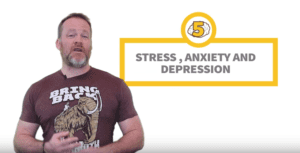
Think about it, was there a time in your life when you were really stressed? Your memory was probably very poor during that time.
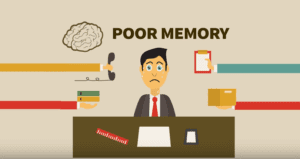
So that is what short term memory is and what can cause it. Now here are some steps to help you prevent short term memory loss.
First step is getting a good night’s sleep. Studies suggest eight hours of sleep is the optimal amount of sleep that is going to support a healthy and normal brain function the next day.
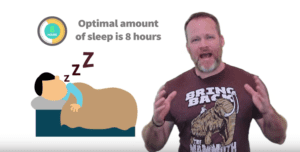
The second step is exercise, which is a natural cure to combat stress. It’s also good to get your blood flowing. Increased blood flow is more oxygen to your brain and your memory will thank you for that.

Next, avoid unnecessary medication. In other words, if you’re taking pills to sleep, it’s much better to go to sleep because you’re exhausted from a good work out or a long day. Make sure you’re getting all your essential vitamins and nutrients because that will help your memory.
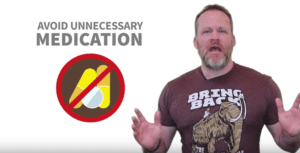
Don’t smoke! Tobacco is going to kill your memory, it’s terrible for your brain, body and memory. Avoid smoking, if you haven’t started, don’t!
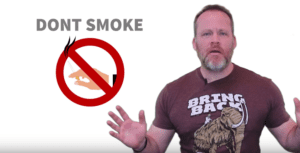
Studies showed that people who were heavy drinkers will experience a mental declination, on average, six years earlier than those who are light drinkers. So take it easy on the bottle.
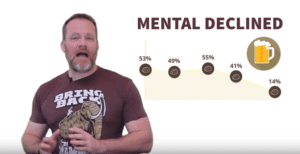

Studies show we can hold four to seven pieces of information, I have a technique called the Mind Palace that will allow me to hold literally hundreds of pieces of information in my short term memory. The mind palace is my favorite memory training technique.

Click below to watch the full video:
To learn more about short term memory loss, click below:

